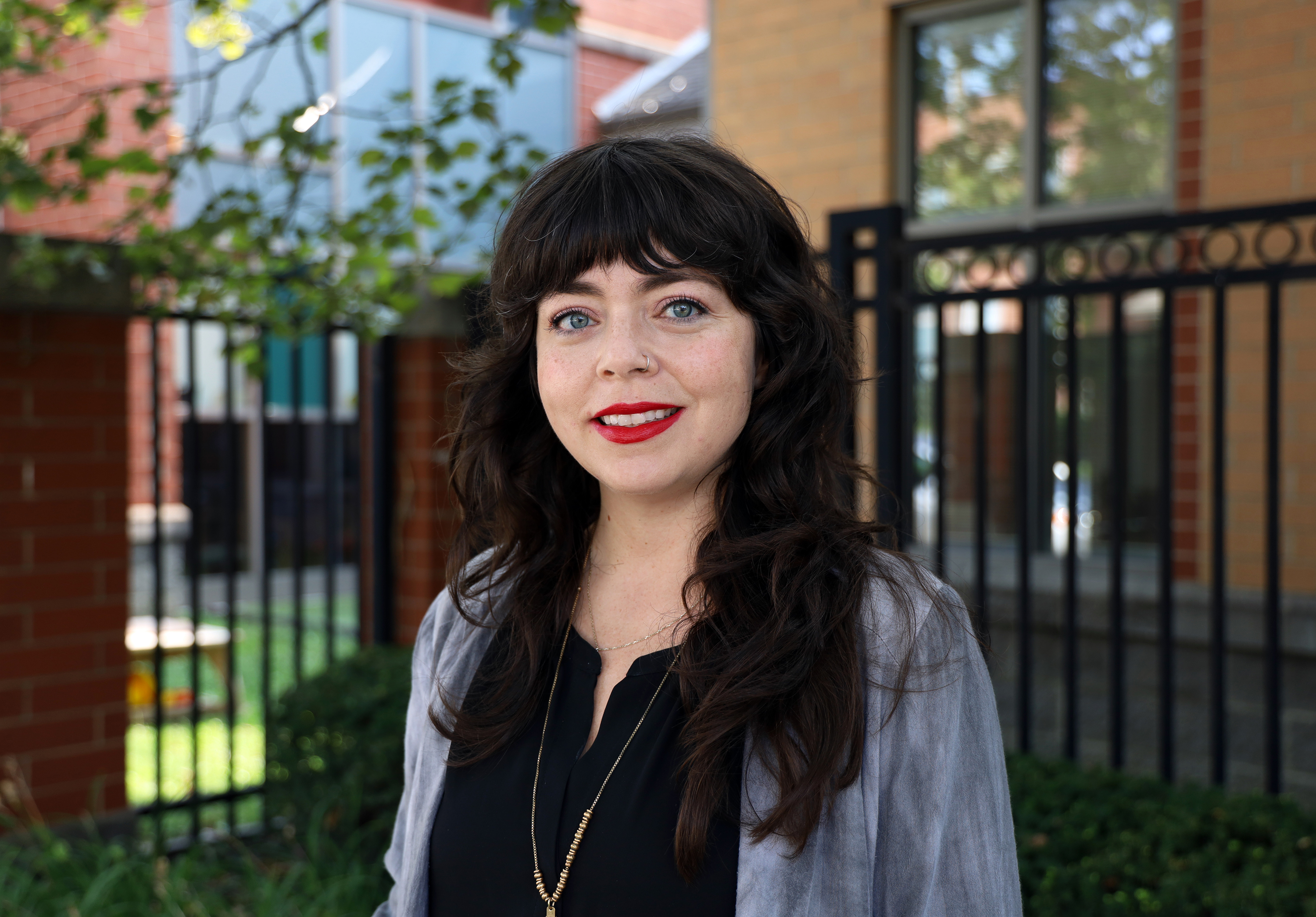Public Health Buckeyes: Jamie O’Leary
MPH-PEP student focused on childhood development, well-being
By Kristen Mitchell

Meet Jamie O’Leary, a MPH-Program for Experienced Professionals student driven by her passion for research, learning and childhood development. She is the associate director of policy and external affairs for the Ohio State University College of Education and Human Ecology’s Crane Center and Schoenbaum Family Center.
Question and Answer
How does public health intersect with your work in early childhood research and policy?
The most critical window of human development is from birth to age 5—children’s brains are developing rapidly! We also know that learning does not magically begin when a child enters kindergarten. They are born as sponges and learning is a natural state of being. The health and well-being of children and their families, particularly mothers, is critical for development and learning, and so much of this is impacted by public health.
Whether babies and young children have access to safe housing, food, health care, air and water, or high quality-early learning opportunities—all of this impacts their development and equips them for success. Like the Frederick Douglass quote tells us, “It is easier to build strong children than to repair broken men.” Public health plays an important role in these early investments.
What drew you to the MPH program?
I love being a student, so when I came to Ohio State for employment, I knew I would eventually want to pursue a second master’s degree because of our fantastic employee tuition benefit (my first is in public affairs/domestic public policy.) Public health interested me because I have always been passionate about the need to address health inequities, having grown up without access to health care coverage. Also, COVID-19 really laid bare the deep inequities in health systems even further, as well as the impact of mental and behavioral health on children and families undergoing tremendous stress.
What public health issues are you most passionate about?
Maternal and infant mortality, toxic stress, the impact of trauma on young children, domestic violence in families, health inequities, and the role of health education and messaging in spurring people to action.
How has your interest in public health grown since you started your career?
I started my career as a public school teacher in Camden, New Jersey, and later shifted to education research and advocacy. My career now is centered on early childhood issues more holistically, not just education, but since day one working in a classroom I knew that health was central to my students’ success. Studying public health has complemented my interests and work experiences, and deepened my interest in public messaging, health promotion and intersections between health and education.
Has there been anything about your experience that has surprised you?
This is not necessarily surprising, but one thing that has really impressed me is the caliber of my peers and colleagues and the unique experience of studying with people from so many disciplines and careers. This lends itself to great outside-the-classroom learning. Reading the message boards for my classes or just overhearing their stories about working directly with patients gives incredible context and makes the degree program feel much more practical than theoretical. I have a renewed respect for the work people do outside of policy or research, and how these perspectives are so critical to informing both of those things.
I have also been surprised by how much I’ve enjoyed online coursework. I love it! As a working parent of two, I don’t think I would have been able to find space in my schedule to do the MPH were it not for the flexibility inherent to the MPH-PEP.
What are your goals for the future?
I want to continue advocating for young children and families to have better access to quality early learning as well as programs that improve their well-being: home visiting, school-based health programs, mental and behavioral health services, etc. I also want to deepen my knowledge of state and federal policies that reduce stress on families and be a more vocal advocate for changes in my community.
What advice do you have for others considering the MPH-Program for Experienced Professionals?
Talk to people in the program or with this degree and get a sense of the vast range of career possibilities that fall under the umbrella of “public health.” Read about current public health issues and see what inspires you — or concerns/upsets you. Both are ways to figure out where your passions lie and what you might like to contribute to the world. Don’t ever think it’s too late — learning is lifelong, and your experience is a gift that can be shared with others.
About The Ohio State University College of Public Health
The Ohio State University College of Public Health is a leader in educating students, creating new knowledge through research, and improving the livelihoods and well-being of people in Ohio and beyond. The College's divisions include biostatistics, environmental health sciences, epidemiology, health behavior and health promotion, and health services management and policy. It is ranked 22nd among all colleges and programs of public health in the nation, and first in Ohio, by U.S. News and World Report. Its specialty programs are also considered among the best in the country. The MHA program is ranked 5th and the health policy and management specialty is ranked 21st.